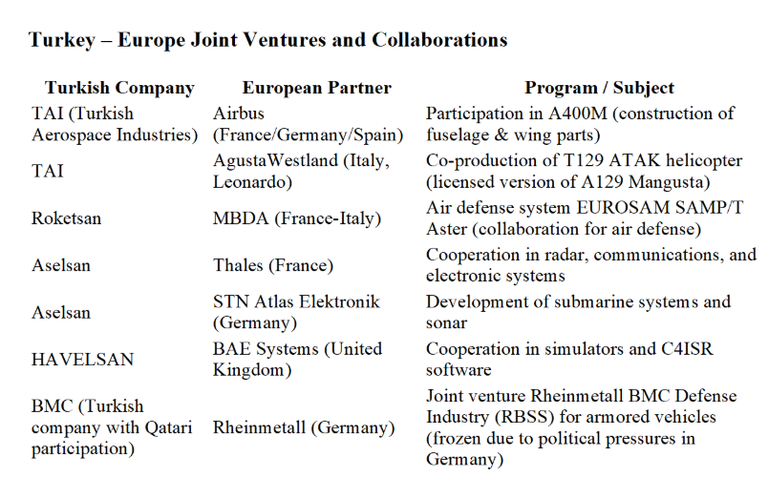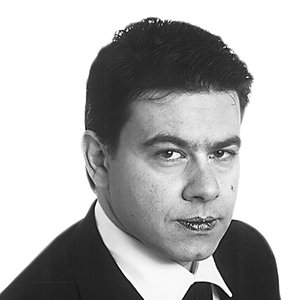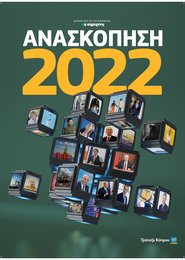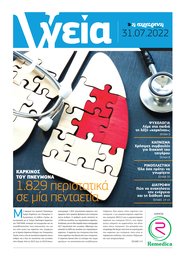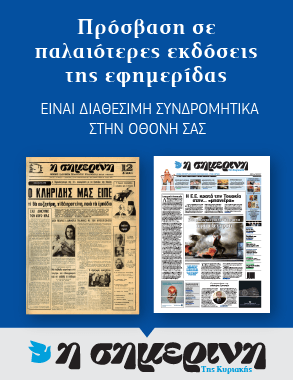Turkish Tentacles in Europe with Acquisitions and Collaborations of Defense Companies
The Turkish application to SAFE or the hour of truth for the veto, the EU authorities, and the interests.
• Do Greece and Cyprus have the right to veto, and if so, will they exercise it?
• Can Turkey manufacture weapons in the EU while occupying a member state?
By Dr. Yiannos Charalambides, International Relations
After the last… accidental appearance of Russian drones in Poland, Europeans went into a red alert and called for the activation of Article 4 of NATO to review the situation. This situation reflects the Russian threat, marking the end of the "carefree butterfly" era, where things seemed to go right and left without believing in any dangers, under the false illusion that everything would always be fine.
The Hour of Truth and the Questions
However, neither Athens nor Nicosia rushed to make them understand that both are living with this threat daily. Particularly, Cyprus is under Turkish occupation, with which the EU is not merely flirting—quite shamelessly—with defense, security, and military industries but simultaneously allowing them to enter the EU. As was confirmed last Thursday, Turkey submitted an application alongside South Korea for participation in the SAFE program, which involves EU funding for military industries of both member states and third countries, amounting to 150 million euros. The Greek government reiterated that it would veto the proposal due to Turkey's casus belli regarding the expansion of Greece's territorial rights in the Aegean to 12 nautical miles. On this matter, three questions arise:
- Do Greece and Cyprus have the right to veto, or does the decision require a special majority?
- If the veto is applicable, will it be exercised? And if not, will they gather a group of states and form a majority of the total EU population at the start of the special majority to block the decision?
- Greece calls for the lifting of the Turkish casus belli. Does Nicosia raise the issue of the full withdrawal of Attila from Cyprus?
The Russian Storm and Turkey
The SAFE case is overshadowed by the Russian storm and the pressure from the USA, forcing the Europeans to:
- Increase their defense spending to 5%.
- Reassess and develop their military industries without depending on the USA, which has a dominant role in NATO.
On this, Turkey’s military and diplomatic importance should be noted:
A) It possesses the second-largest army in NATO, after the USA.
B) It has played a diplomatic role in seeking to end the war in Ukraine, maintaining good relations with both Moscow and Kyiv. Despite not adopting the Western—and specifically the European—sanction policy, it has suffered no costs and is now considered essential for the EU, as it is the only country that, in one way or another, can implement the containment policy in the Black Sea against any Russian threat.
C) It now boasts one of the most reliable defense industries in the world, which it uses as a tool for diplomacy, power, and serving its interests.
An Instrument of Independence
What is the state of Turkey’s military industry? In 2024, Turkey had around 3,500 defense companies working on 1,100 projects. Its exports surpassed 7 billion dollars, making Turkey the 11th-largest weapons supplier worldwide. Additionally, Turkish defense industries employ around 110,000 workers. The significance of this is Turkey’s military detachment from third parties, which reaches 80%. This percentage ties directly to Turkey’s goals of establishing itself as a regional power on a global scale in the context of the new Ottoman Empire, which is taking shape from Libya to Albania, including Macedonia, Turkish-speaking countries, Cyprus, and Syria, as well as military bases in Qatar and Somalia. Turkey is also involved in Africa, creating dependencies through military equipment sales. Turkey is proceeding with this design, investing in defense, as defense is seen as an investment, not an expense.
The Question of Who Will Fight
At present, Turkey does not theoretically have armed forces, but practically, its military is always ready for action. The culture is different from that of the EU in the following sense: In Turkey, the policy of the "carefree butterfly" never prevailed. Instead, Turkey’s policy has been one of hard realism and expansionism. The Turkish military is combat-ready, while Europeans face practical challenges. Which EU member states will fight on the front line if the situation escalates with Russia? If they decide to do so in Brussels, is the youth of EU member states ready to fight? Likely, no.
Collaborations and Acquisitions
Turkey has long anticipated the situation in Europe and has proceeded either with collaborations between its defense companies and those of EU member states or with acquisitions. Some notable examples are:
- Baykar collaborates with Italian Leonardo for the joint production of UAVs, which means Turkey is infiltrating the European market and gaining access to European supply chains and air defense system markets.
- Turkish Aerospace Industries (TAI): A) Participates in the production of European aircraft, such as Airbus's A400M. B) It is linked with international aeronautical networks, boosting military technology.
- Roketsan, ASELSAN, ASFAT, MKE are included in the list of the world’s 100 largest defense industries.
Furthermore, Turkish defense companies have acquired European defense companies. Some key acquisitions include:
- CANiK / Samsun Yurt Savunma (SYS) acquired AEI Systems Ltd (UK), which manufactures medium-caliber guns.
- Baykar acquired Piaggio Aerospace (Italy), which specializes in aeronautics and UAV programs.
- ARCA Savunma (ARCA Defense) acquired Esplodenti Sabino S.p.A. (Italy), a manufacturer of ammunition and explosives.
- Sarsılmaz acquired the brand of Vincenzo Bernardelli S.p.A. (Italy), specializing in small arms and military rifles.
Participation in SAFE and the Veto
It is essential to examine the European companies that have been acquired by Turkish companies and still have their headquarters in the EU. Why? Because these companies will be eligible to participate in the SAFE program, which is an EU initiative with funding reaching 150 billion euros by 2030. The aim is to enhance joint programs in the defense industry of EU member states with the participation of third countries, based on certain criteria. At least 65% of the value of each project must be executed by companies located within the EU or Ukraine. Participation from third countries is limited to 15–35%. Therefore, companies acquired by Turkish firms but still legally based in the EU will be able to participate in SAFE just like other European companies. Other companies, on the other hand, will fall under the criteria for third countries, such as Turkey, which is still in the process of joining the EU.
This has sparked a debate about whether Cyprus and Greece have the right to veto. This will become clear when the decision needs to be made. If one adopts the official government position from Athens, the conclusion would be that Turkish companies will not participate unless Turkey lifts its casus belli, which concerns the extension of Greece's territorial rights to 12 nautical miles, as defined by international maritime law. This is a public position, which binds Greece, as it is known to our partners.
The Lever of Pressure and the Deficit
Clearly, Nicosia supports Athens. However, it has not made a similar statement. It has not clarified that:
- No Turkish company should participate in SAFE as long as the Republic of Cyprus remains under occupation. This could only happen if Turkey agrees to a timeline for the full withdrawal of Turkish troops from Cyprus, which is also EU territory.
- The participation of European companies acquired by Turkish capital should be scrutinized, because how can they manufacture weapons for EU defense while occupying Cyprus? Furthermore, the issue should be linked with Ukraine in the following way:
A) On one hand, weapons cannot be sent to Ukraine, while on the other, weapons are being manufactured within the EU by the Turkish invader and occupier of Cyprus.
B) It is neither morally, politically, nor legally correct to impose an embargo and sanctions on Russia as an invader, while simultaneously rewarding the Turkish occupier of Cyprus.
What EU principles and values are being discussed? The question is: Why has the President not taken a clear position on this matter? What does he fear? That Turkish Cypriots will not continue the current process to find common ground for restarting negotiations? Isn’t the full withdrawal of Turkish troops a red line for him? For a long time, wasn’t the EU supposed to be a lever for a democratic solution to the Cyprus problem? Isn’t such a clear stance a tool of pressure on Ankara? How else could Turkey be made more flexible?
The Reminder
The defense industry is about both money and weapons. The EU wants Turkey, and Turkey wants the EU, which we are part of, and we should take advantage of the situation through the mechanisms Brussels offers. If we don’t, Turkey will further consolidate its position within the EU, even though it is not a member state, exploiting the circumstances without interference. Why? Because beyond principles, there are interests. And while our leaders built the theory and practice of the “unguarded state” within the “carefree butterfly” policy, Ankara correctly read the international system and built defense industries to exert influence, increase its independence, and simultaneously use its position to strengthen its hold on Cyprus. Why shouldn’t they? Especially when our leaders fail to remind them.
